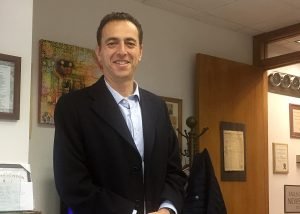Final Arguments in Writing, Judge Mulls Key Ruling
It may take Fairfax Circuit Court Judge R. Terrence Ney months to make a ruling in the trial that concluded midday yesterday pitting the Fairfax Water Authority against that of the City of Falls Church. At stake for tiny Falls Church, being sued to “cease and desist” its water operations in gigantic Fairfax County, could be its ultimate viability as an independent jurisdiction.
Final Arguments in Writing, Judge Mulls Key Ruling
It may take Fairfax Circuit Court Judge R. Terrence Ney months to make a ruling in the trial that concluded midday yesterday pitting the Fairfax Water Authority against that of the City of Falls Church. At stake for tiny Falls Church, being sued to “cease and desist” its water operations in gigantic Fairfax County, could be its ultimate viability as an independent jurisdiction.
Final arguments are slated to be submitted by both sides in the dispute in writing, with also opportunities for written rebuttals.
The seven-day trial in the Fairfax County courthouse involved only one component of Fairfax Water’s overall offensive against Falls Church, but could set the table for how the matter of whether Falls Church’s water system can continue to compete for customers in the county will be resolved. Fairfax’s challenge to the constitutionality of Falls Church taking a reasonable return on investment from the system was intended to be the sole focus of the trial.
However, Fairfax Water was also able to argue that Falls Church’s water rates, themselves, amounted to “gouging” Fairfax County users of its system, and that amounted to a “tax” to subsidize the City’s operating budget.
But two particularly strong witnesses for Falls Church dominated the trial during its two-and-a-half days this week, establishing the legality of the City’s practice and the fact that the rates it charges its water customers are fair and reasonable.
Glen Watkins of Technical Associates of Richmond, an expert in the field of setting water rates, acquitted the City’s current and historic rate structure with a veritable blizzard of details used in the industry to address such matters.
He withstood a cross-examination from the Fairfax Water’s attorney, Stuart Raphael, that tried to nit-pick and get him to speculate about hypotheticals. On a couple of occasions, Watkins, a highly-respected professional in his field, became impatient with the Fairfax Water’s approach to cross-examination, calling the arguments “nonsensical,” “absolutely ridiculous” and “absurd.”
Tuesday and yesterday, the court heard testimony from Falls Church’s Chief Financial Officer John Tuohy, who was sufficiently cogent and succinct in his comments that Judge Nye complimented him by name. Tuohy’s focus was on how the City treats the revenues it derives from its water system.
Other Falls Church witnesses included Son Nguyen, former Director of Public Utilities for Falls Church and Chuck Murray, ironically a City of Falls Church resident who is Fairfax Water’s chief executive.
Nguyen testified about the way Falls Church used its investments to enhance and upgrade the water system during the 1980s.
When questioned by Falls Church’s attorney, Alexander “Sandy” Thomas of Reed Smith, Murray conceded that in Fairfax Water’s many negotiations and communications with Falls Church dating back to 1978, Fairfax Water never expressed concerns about the legality of Falls Church taking a reasonable return on investment. That concern, and the lawsuit with $20 million in punitive damages, first arose in 2008.
Thomas argued that Fairfax Water “waived its claims in this case because for decades it said nothing about the practice.”
He argued that “Virginia statutory and common law authorize Falls Church to profit from the operation of its water system and decisions of the Virginia Supreme Court from the 1930s forward authorize such a practice.”
Contrary to “gouging” customers, Watkins testified, he found the rates charged by Falls Church to be “very reasonable,” and based on an elaborate method for establishing rates within the industry nationwide, “Certainly within the range of reasonableness.”
He said the same for the City’s “return on investment,” which, he said, is viewed in the industry as “a margin required to provide service” insofar as it is the cost of assuming risk.
Falls Church’s return on investment for the operation of its 450-mile system of pipes and pumping stations serving over 120,000 customers in Northern Virginia, mostly in Fairfax County, is a key component of its annual operating budget, helping to keep the tiny city (11,400 residents compared for over one million in Fairfax County) solvent.













